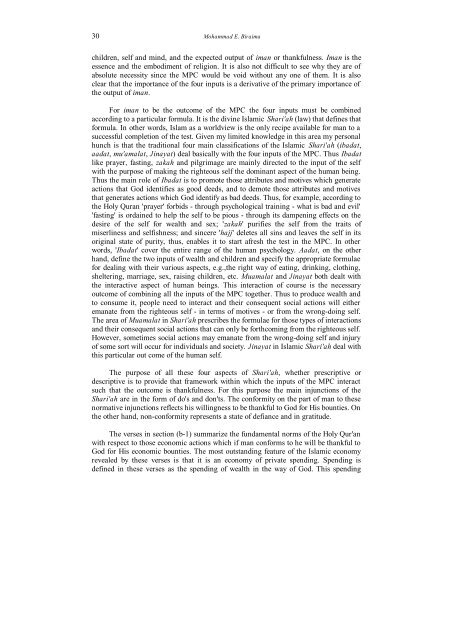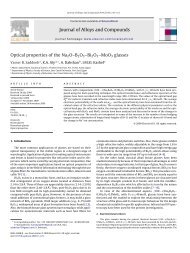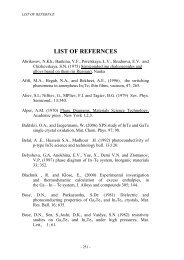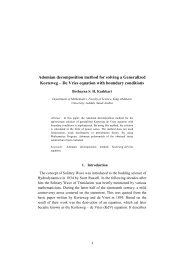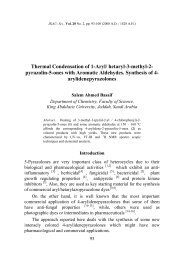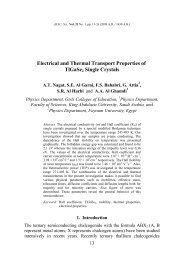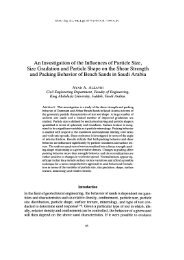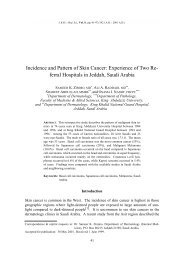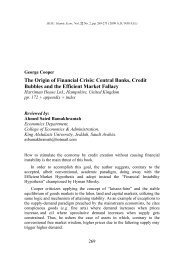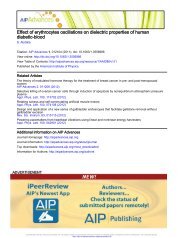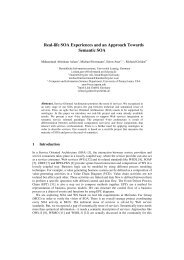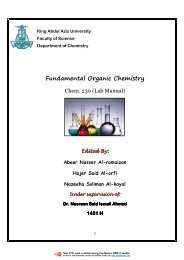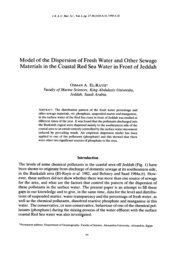A Qur'anic Model for a Universal Economic Theory
A Qur'anic Model for a Universal Economic Theory
A Qur'anic Model for a Universal Economic Theory
You also want an ePaper? Increase the reach of your titles
YUMPU automatically turns print PDFs into web optimized ePapers that Google loves.
30 Mohammad E. Biraima<br />
children, self and mind, and the expected output of iman or thankfulness. Iman is the<br />
essence and the embodiment of religion. It is also not difficult to see why they are of<br />
absolute necessity since the MPC would be void without any one of them. It is also<br />
clear that the importance of the four inputs is a derivative of the primary importance of<br />
the output of iman.<br />
For iman to be the outcome of the MPC the four inputs must be combined<br />
according to a particular <strong>for</strong>mula. It is the divine Islamic Shari'ah (law) that defines that<br />
<strong>for</strong>mula. In other words, Islam as a worldview is the only recipe available <strong>for</strong> man to a<br />
successful completion of the test. Given my limited knowledge in this area my personal<br />
hunch is that the traditional four main classifications of the Islamic Shari'ah (ibadat,<br />
aadat, mu'amalat, Jinayat) deal basically with the four inputs of the MPC. Thus Ibadat<br />
like prayer, fasting, zakah and pilgrimage are mainly directed to the input of the self<br />
with the purpose of making the righteous self the dominant aspect of the human being.<br />
Thus the main role of Ibadat is to promote those attributes and motives which generate<br />
actions that God identifies as good deeds, and to demote those attributes and motives<br />
that generates actions which God identify as bad deeds. Thus, <strong>for</strong> example, according to<br />
the Holy Quran 'prayer' <strong>for</strong>bids - through psychological training - what is bad and evil'<br />
'fasting' is ordained to help the self to be pious - through its dampening effects on the<br />
desire of the self <strong>for</strong> wealth and sex; 'zakah' purifies the self from the traits of<br />
miserliness and selfishness; and sincere 'hajj' deletes all sins and leaves the self in its<br />
original state of purity, thus, enables it to start afresh the test in the MPC. In other<br />
words, 'Ibadat' cover the entire range of the human psychology. Aadat, on the other<br />
hand, define the two inputs of wealth and children and specify the appropriate <strong>for</strong>mulae<br />
<strong>for</strong> dealing with their various aspects, e.g.,the right way of eating, drinking, clothing,<br />
sheltering, marriage, sex, raising children, etc. Muamalat and Jinayat both dealt with<br />
the interactive aspect of human beings. This interaction of course is the necessary<br />
outcome of combining all the inputs of the MPC together. Thus to produce wealth and<br />
to consume it, people need to interact and their consequent social actions will either<br />
emanate from the righteous self - in terms of motives - or from the wrong-doing self.<br />
The area of Muamalat in Shari'ah prescribes the <strong>for</strong>mulae <strong>for</strong> those types of interactions<br />
and their consequent social actions that can only be <strong>for</strong>thcoming from the righteous self.<br />
However, sometimes social actions may emanate from the wrong-doing self and injury<br />
of some sort will occur <strong>for</strong> individuals and society. Jinayat in Islamic Shari'ah deal with<br />
this particular out come of the human self.<br />
The purpose of all these four aspects of Shari'ah, whether prescriptive or<br />
descriptive is to provide that framework within which the inputs of the MPC interact<br />
such that the outcome is thankfulness. For this purpose the main injunctions of the<br />
Shari'ah are in the <strong>for</strong>m of do's and don'ts. The con<strong>for</strong>mity on the part of man to these<br />
normative injunctions reflects his willingness to be thankful to God <strong>for</strong> His bounties. On<br />
the other hand, non-con<strong>for</strong>mity represents a state of defiance and in gratitude.<br />
The verses in section (b-1) summarize the fundamental norms of the Holy Qur'an<br />
with respect to those economic actions which if man con<strong>for</strong>ms to he will be thankful to<br />
God <strong>for</strong> His economic bounties. The most outstanding feature of the Islamic economy<br />
revealed by these verses is that it is an economy of private spending. Spending is<br />
defined in these verses as the spending of wealth in the way of God. This spending


